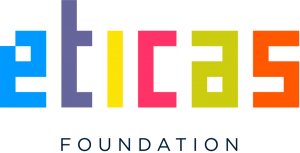The “black box” of data
#RavalDataCommons
As a result of the processes of progressive digitalization of social life, both municipal administrations and private organizations are responsible for the management of an increasing volume of personal data of citizens.
This fact opens up new fields and possibilities, but also risks. On the one hand, we have witnessed a historical trend where policies in the management of data have been mainly focused on the provision of technological services (under the smart city paradigm) and not on the structuring of open data systems that allow for the promotion of innovation ecosystems or promotion of bottom-up initiatives.
On the other hand, the creation of conditions for the exercise of the rights to information and the control over data by citizens have been relegated to the background. Conditions for which data management policies and mechanisms should be developed, starting from responsibility, privacy and transparency, articulating a system of data governance that allows segmentation according to their sensitivity.
Without the development of initiatives of aggregation and responsible management of data at all levels, we run the risk of infringing fundamental rights, disempowering citizens and losing the opportunity that the data supposes for the deployment of digital social innovation ecosystems. The responsible and informed management of the data is the only way to take full advantage without infringing rights.

Raval Data Commons
In order to address these challenges, in this project we propose to develop a robust and replicable Data Commons methodology, that is, an environment where to deploy and use existing data systems, and propose to pilot this methodology at the neighborhood level, in the Raval, while exploring spaces for creating value based on proximity data.
To do so, it will be based on a diagnosis of the state of the infrastructures and services scheme that have an impact on the Raval and that use data for its operation. Next, the data will be categorized and the access will be assigned according to the needs of the potential users. The aim is to make these data useful for the social-institutional context of Raval (social entities in the neighborhood, small businesses, associations, universities or spaces that promote research), while collaborative work is encouraged, it is guaranteed privacy and the use of open technology is encouraged, facilitating an ethical environment for collaborative data.
In addition, the project also includes the creation of its own servers for the management and user interfaces, and also foresees meetings with the stakeholders of the neighborhood potentially interested with this tool. Through this interaction we want to know what they expect from this initiative that we start, as well as quantify what they can and want to be able to get from it.
The final objective is to create a more democratic and transparent data management system, which will provide a great resource of useful urban data for research and the formulation of public policies, among other objectives. This system will be fed from several data sources, taking into account different types of users and sensitivity of the data sets, and thus creating a permit scheme with different roles. The technical and methodological challenge is, without any doubt, important. Beyond this, but, it is about making the new system available to the neighborhood and that its entities make it their own, generating a model of their own governance. And, beyond the scope of this project, we also seek to maintain it over time, and establish it as a reference for other open data experiences. And for all this, we started to make a long path. Are you joining us?
Raval data commons: The Project
#RavalDataCommons
In this project we propose to develop a robust and replicable Data Commons methodology, that is, an environment where to deploy and use existing data systems, and propose to pilot this methodology at the neighborhood level, in the Raval. The main aim of the project is to empower citizens to access and profitably use the database owned by public authorities in order to generate social, cultural and economic values for the neighbourhood.
Opening Data · Sharing the Commons
Two conceptual frameworks coming from different traditions of thought, how to relate the intangible nature of data with the concrete, offline element that seems peculiar of commons?
- Defining Open Data: it consists of giving free and public access to the databases containing information about the city. Open Government Data refer to data collected by the public sector and published under an open license, in order to provide free access and use to the private and public domains. Benefits of Open Data is, overall, to increase efficiency and decision making, by making available information that could lead to more optimal choices grounded on a larger amount of data
- Defining the Commons: while traditionally the concept was used for natural resources that were accessible to the members of a community without being owned privately, such as air, water and lands; the notion of “commons” is a powerful entry point for thinking about the use and share of digital information. The label “new commons” has begun to cover a series of heterogeneous sectors and resources because it points to the sharing of resources within a certain community, from scientific knowledge and community gardens, to Wikipedias or cultural treasures.
Engaging with Raval relevant actors and urban spaces
The data stored by city administrations contain information that can be used by policy makers, researchers and citizens for developing a richer and more accurate representation of urban problems and potentialities. Concretely, Raval Data Commons will be focused in three areas of interest:
- Housing
- Insecurity
- Commerce
In order to generate positive cultural and social outcomes and foster the communitarian appropriation of other commons, Eticas has already developed a state of the art around data commons at local level and a sociodemographic study about the situation of the above domains within Raval. On this basis, between the months of July and September, we will be developing interviews with Raval’s relevant actors (local associations and entities) as well as privacy experts and members from Barcelona city council. Interviews will intend to identify key issues linked to each area; the available data and the desired action that data commons would cover. They will be conducted from a positive approach focused on Raval’s potentialities instead of difficulties, that tend to stigmatize the neighbourhood.
All in all, the overall objectives of this first phase of the project is to create a re-evaluation process; to increase civic engagement with urban spaces and to promote a model of free culture grounded on responsibility and participation.
Project awarded digital social innovation subsidies by ‘Impulsem el que fas 2017’





